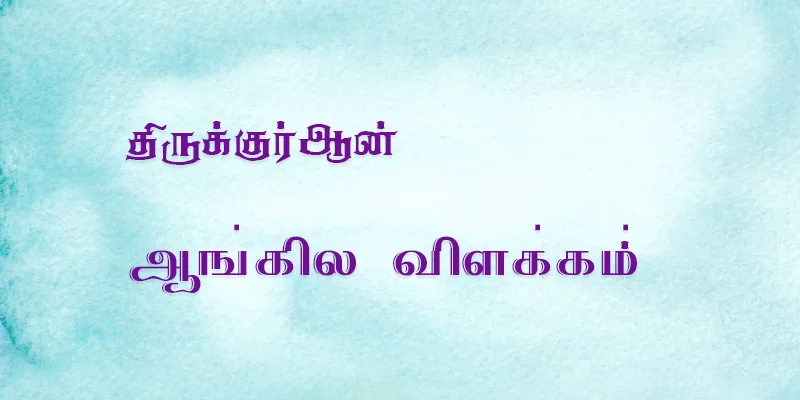115. Punishment for whoring.
Verse 24:2 says men and women who indulge in prostitution should be punished with one hundred whip lashes. But Prophet Muhammad segregated the punishment for prostitution into two.
He awarded death sentence, when those charged with prostitution happen to be married, and one hundred whiplashes when unmarried.
Hadith book Bukhari- 2315, 2725, 2649, 2696, 5270, 5272, 6812, 6815, 6820, 6824, 6826, 6828, 6829, 6633, 6836, 6843, 6860, 7195, 7260.
Some argue the Quran prescribes a punishment of one hundred whiplashes only, and there should be no death sentence as punishment for the same.
Their argument is ‘Allah has clearly said in the Quran, one hundred whiplashes as punishment for prostitution, and had not differentiated between married and unmarried accused, hence the punishment stops with one hundred whiplashes, with no death sentence’.
They also put forth evidence to support their argument there are no two types of punishments for prostitution, citing verse 4:25 where in it is said female slaves receive half the punishment of what is awarded to free women for the same crime.
They raise a question: if half of 100 lashes amount to fifty lashes, what does half of a death sentence amount to?
It is a right stance not to accept hadiths that go against the edicts of the Quran, but we cannot accept the concept, death sentence for prostitution is against the Quran.
Did Prophet Muhammad say and implement things that went against the Quran, in the matter of prostitution? Do their questions carry any conviction, we find their argument completely mistaken.
A part of the verse 4:25 saying ‘only half of the punishment meted out to a married free woman is applicable to those female slaves who indulged in prostitution’ remains the mainstay for these people against death sentence for prostitution.
No one can deny it if it is thus mentioned in the Quran. But this very question is raised based on the translation done wrongly to the above phrase.
The word ‘almuhsanaat’ is found in the phrase of the verse 4:25. This word can be translated to mean different things, and one meaning cannot be applied to in all cases.
By not paying much attention to the different meanings of this word, and without proper understanding, the word is translated as married women. Based on such translation questions are raised. If we analyze the verses containing the word ‘almuhsanaat’ in the whole Quran, we can arrive at what it means in this phrase.
The same word can be found in the previous verse 4:24.
Verse 4:24 begins with the word ‘walmuhsanaat’ after listing out those prohibited from being married to in the previous verse, continues to add in the list the ‘muhsanaat’.
It must be taken to mean the one living with her husband, or somebody’s wife. We understand we are not allowed to marry someone else’s wife.
Now look at verse 5:5 where the same word ‘almuhsanaat’ is found.
When mentioning the list of those permitted to be married to, the verse adds ‘muhsanaats’ to it.
In verse 4:24 Allah forbids getting married to ‘muhsanaats’ while verse 5:5 says ‘muhsanaats’ can be married to.
We cannot apply the same meaning to the word muhsanaat in 5:5 as we did in 4:24, because it would mean marrying another’s wife is allowed. In verse 5:5 the word ‘muhsanaat’ refers to women without husbands, and in verse 4:24 it means women who live with their husbands.
When a word is given a meaning at one place and a different meaning at another place, then interchanging the places and not expecting differences and confusions is ignorance.
We differentiate as permitted and prohibited as per the word structure in the sentence and take to mean accordingly. Though both the meanings apply to the same word, we take the meaning as required to the context.
The word ‘almuhsanaat’ has yet another meaning other than ones already mentioned.
Verses 24:4, 24:23 mentions as ‘whoever slanders the muhsanaat women’,
Here it cannot be taken to mean ‘whoever slanders a married woman’ wherein a question would arise whether an unmarried woman can be slandered.
And cannot be taken to mean as whosoever slanders unmarried women, giving chance to question whether married women can be slandered. The correct meaning here is ‘those who maintain chastity’. This word also has such a meaning, and the verse warns those who slander women leading a chaste life.
Here the question is whether to take the meaning of the word ‘muhsanaat women’ in verse 4:25 as those with husband or without husband, to punish them half the quantum.
The word structure here offers both the options to be used. But is imperative it is taken as meaning the accused receives half the punishment of a woman without a husband. There is a proper reason for it. We have already pointed out from the previous verse the word ‘almuhsanaat’ is used to mean ‘women with husband’.
Not only from the previous verse, but the word ‘muhsanaat’ can also be found in the beginning of this verse, appearing twice in this verse (4:25).
The two places are as follows:
1)‘Those of you who cannot afford to marry muhsanaats’
And,
2)‘Half of the punishment awarded to muhsanaat women’.
In the first instance it cannot be taken to mean “those who cannot afford to marry women with husbands” because marrying a woman with husband is totally forbidden. Hence it needs to be taken as to mean ‘those who cannot afford to marry women without husband,’
Here the conclusion is, though the word ‘muhsanaat’ is used in the previous verse as meaning ‘those women with husbands’ the same word used in the beginning of this verse to mean- those women without husbands. Hence, we need to render the same meaning of the word ‘almuhsanaat’ used in the latter part to the same word used in the beginning of the verse.
It is important to take note of the kind of meaning with which the word ‘muhsanaat’ used in the previous verse and in this.
Hence replacing the meaning ‘half of the punishment awarded to married women’ with ‘half of the punishment awarded to unmarried women’ is appropriate, while deciding on the award of punishment to ‘muhsanaats’.
If the correct meaning of the word is arrived at, it leads to their argument being destroyed. And the punishment remains as 100 whiplashes for the unmarried women indulging in prostitution, half of which is 50 lashes.
There is yet another reason for rendering the second meaning to this word, used to denote both women with and without husbands.
Allah, instead of saying the punishment for prostitution says ‘half of the punishment awarded to muhsanaats’.
This is possible only when there are two types of punishments, one for muhsanaats and another for those other than muhsanaats.
If there happened to be just one punishment, the verse would have mentioned as ‘half the punishment for prostitution’ instead of ‘half the punishments of muhsanaats.’
We come to know through this verse about the existence of two types of punishments for prostitution.
In such situations when it is said ‘half of the punishment of muhsanaats’ we need to implement things that can be halved and not consider things that cannot be halved.
Hence the meaning of the word ‘muhsanaat’ needs to be taken as meaning ‘half of the punishment awarded to unmarried women’ indicating the existence of a different punishment for married women.
Prophet Muhammad has identified that different punishment as the ‘death sentence’. Hence the declaration by Prophet Muhammad the two types of punishments for prostitution is an explanation of verse 4:25 and not a contravention to it.

